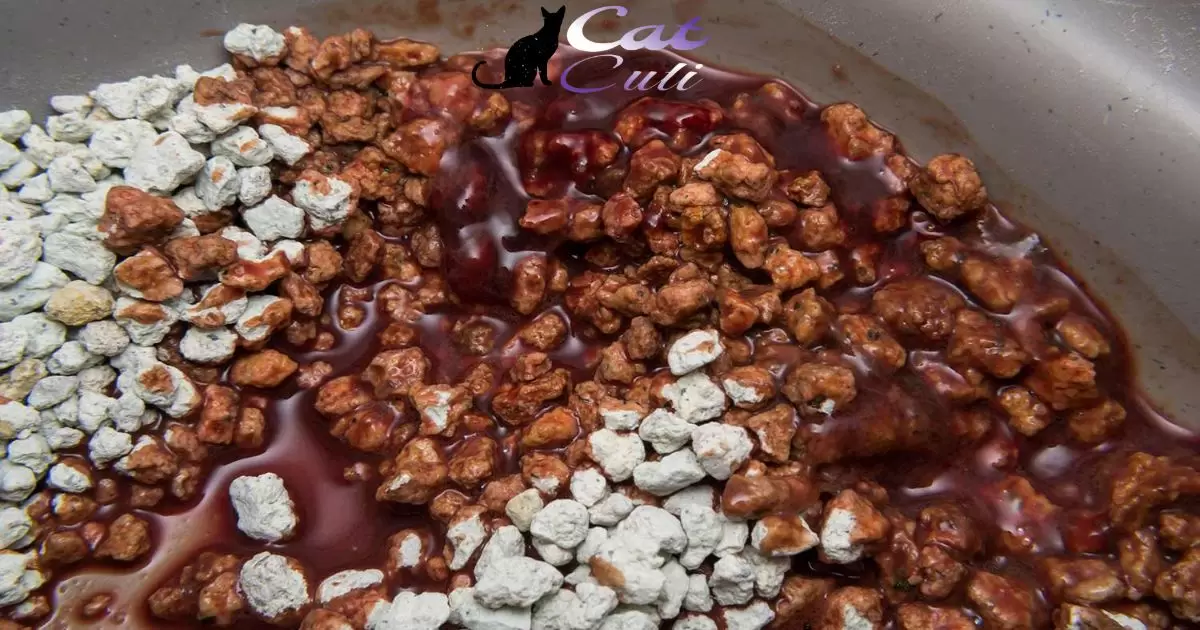Wet cat food might trigger diarrhoea in cats due to sudden dietary changes or sensitive stomachs. The high moisture content in wet food could also impact some cats differently. Diarrhoea might occur if the cat isn’t used to wet food or if the specific brand or ingredients don’t suit its digestive system.
Have you ever wondered, Can wet food cause diarrhoea in cats? It’s a valid concern for pet owners seeking the best diet for their feline companions. Understanding how this type of food might impact your cat’s digestive system is crucial. Let’s dive into whether wet food could potentially lead to diarrhoea in our beloved furry friends.
This question often worries cat owners exploring their pet’s diet. Understanding the potential effects of wet food on a cat’s digestive system is vital. Stick around to discover how this type of food might impact your feline friend’s health.
Can Too Much Dry Cat Food Cause Diarrhea
Overfeeding dry cat food can lead to diarrhea in cats. Excessive consumption of dry food may overwhelm their digestive system, causing upset stomachs and loose stools. Moderation in serving dry food is essential to prevent digestive issues and maintain a healthy balance in a cat’s diet.
Cats require a balanced diet, and an excess of dry food might disrupt their digestive tract. Monitoring portion sizes and ensuring a mix of wet and dry food can help regulate their digestion and prevent the onset of diarrhea due to overconsumption of dry cat food.
How Long Will My Cat Have Diarrhea After Changing Food
Changing your cat’s food can lead to diarrhea, which usually lasts a few days. The transition period varies, often taking about a week for your cat’s digestive system to adjust. Gradually introducing the new food over several days can help minimize the duration of diarrhea.
It’s essential to monitor your cat during this adjustment phase. If diarrhea persists beyond a week or if your cat shows other concerning symptoms, consulting a vet is recommended. They can provide guidance on managing your cat’s diet and any necessary treatment to ease the transition and ensure your cat’s health.
Does Wet Food Cause Diarrhea In Dogs
- Wet food may cause diarrhea in some dogs due to sudden dietary changes.
- High moisture content in wet food might affect certain dogs’ digestive systems differently.
- Diarrhea can occur if the dog isn’t accustomed to wet food or if specific ingredients don’t suit its stomach.
- Consulting a vet can help identify the cause of diarrhea and determine the best dietary approach for your dog’s health.
Does Wet Cat Food Cause Soft Stool
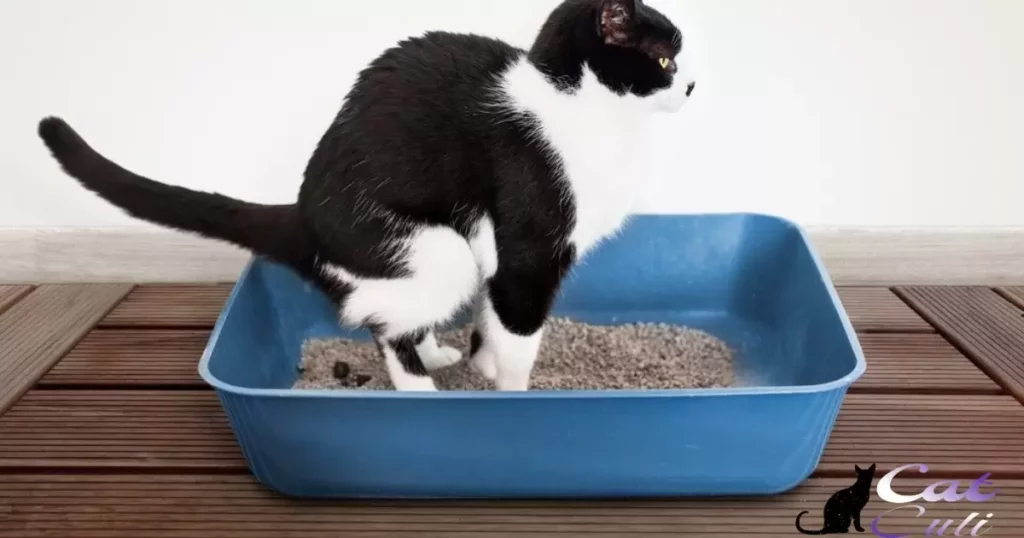
Wet cat food can sometimes lead to softer stools in felines. This type of food contains higher moisture levels and different ingredients that might affect your cat’s digestion. It could cause loose stools in some cats due to changes in their diet or how their bodies react to specific ingredients.
Monitoring your cat’s stool consistency when introducing or changing their diet can help determine if wet food is causing any digestive changes. If you notice persistent issues, consulting a vet is advisable for tailored dietary advice for your cat’s health.
Can Too Much Wet Food Cause Diarrhea In Dogs
Feeding excessive wet food to dogs might lead to diarrhea. It can upset their stomachs due to sudden dietary changes. Dogs may experience digestive issues if they’re not accustomed to a wet food-heavy diet. Monitor their intake to prevent potential digestive discomfort.
Maintaining a balanced diet for dogs is crucial to avoid diarrhea. Introduce wet food gradually and in moderation to prevent digestive upset. Sudden changes in diet can trigger stomach issues, so monitor their food intake carefully to keep your furry friend healthy and happy.
What To Feed A Kitten With Diarrhea
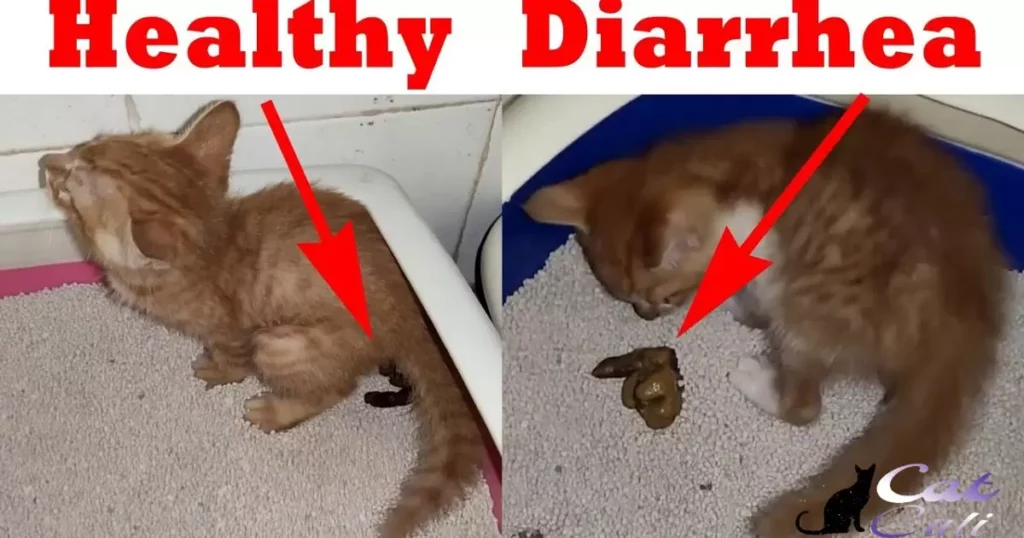
If your kitten has diarrhea, feeding them easily digestible foods can help. Opt for boiled chicken or plain cooked rice to soothe their upset stomach. These foods provide gentle nourishment without upsetting their sensitive digestive system. Additionally, offering them a little bit of plain yogurt might aid in restoring healthy gut bacteria
Always consult your vet for guidance on what to feed a kitten with diarrhea. They can recommend specific diets or additional steps to help your kitten recover faster. Following their advice ensures your kitten receives the right nutrition while recovering from digestive issues.
My Kitten Has Diarrhea But Seems Fine
If your kitten has diarrhea but appears healthy otherwise, it might be due to a sudden diet change or sensitivity to food. Ensure your kitten stays hydrated by providing plenty of water and consider a bland diet like boiled chicken and rice for a day or two.
Monitor closely and if diarrhea persists or worsens, consulting a vet is wise to rule out any underlying issues and ensure your kitten’s well-being.It’s common for kittens to experience occasional diarrhea without any other visible symptoms of illness. This could stem from stress, a dietary shift, or minor digestive upsets.
Keep an eye on your kitten’s behavior, appetite, and energy levels. If diarrhea continues beyond a day or two or if you notice other concerning signs, seek veterinary advice promptly for proper evaluation and guidance.
Symptoms Of Diarrhea In Cats
Diarrhea in cats brings clear signs. Watch for loose stools, frequent trips to the litter box, or even accidents outside it. Vomiting, lack of appetite, or lethargy might accompany diarrhea too. If you notice these symptoms, a vet visit is essential for proper care and diagnosis.
Your cat’s behaviour can signal diarrhea. Keep an eye out for changes in energy levels, appetite, or litter box habits. Loose stools and vomiting are common indicators. Quick action and vet guidance can ensure your feline friend gets back to their playful self.
Is Wet Food Bad For Cats?
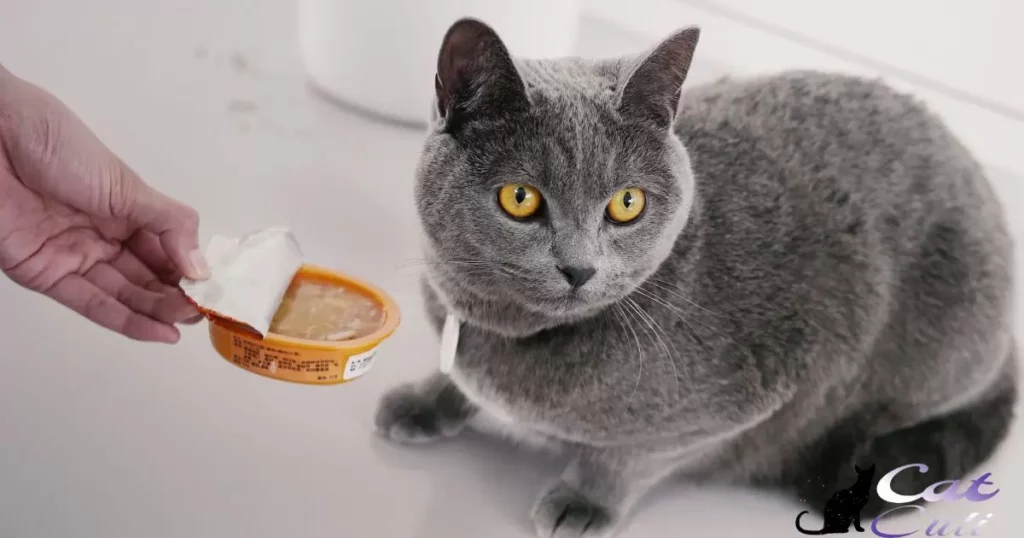
Wet food isn’t necessarily bad for cats. It offers hydration and can suit some feline palates better. Yet, feeding only wet food might lack certain dental benefits dry food provides. Moderation is key; too much wet food could lead to dental issues or weight gain. Combining both wet and dry food in a balanced diet keeps your cat healthy and satisfied.
Cats may enjoy wet food’s moisture, but it isn’t inherently harmful. However, an exclusive wet food diet could miss dental benefits found in dry food. It’s essential to strike a balance between the two for optimal feline health, preventing potential dental problems or weight issues. Mixing both types ensures a well-rounded diet for your beloved pet.
Does Wet Cat Food Cause Diarrhea?
Wet cat food might trigger diarrhea in some cats. The high moisture content in wet food can sometimes lead to digestive issues. Certain cats might not adjust well to the sudden change in their diet, causing diarrhea. However, not all cats will experience this reaction to wet food.
It’s important to introduce new foods gradually to your cat’s diet. Monitor how your cat responds to wet food and watch for any signs of stomach upset or diarrhea. By observing their reactions, you can determine if wet food is suitable for your cat without causing digestive issues.
What Is Wet Cat Food?
Wet cat food is a moist type of pet food containing higher water content than dry kibble. It usually comes in cans or pouches and offers various flavours and textures. Cats often find wet food appealing due to its smell, taste, and easier-to-chew consistency.
Pet owners prefer it for its higher moisture levels, which can help keep their cat hydrated.This type of cat food typically contains meat, fish, or poultry along with added vitamins and minerals. It’s considered more similar to a cat’s natural diet compared to dry food.
Many pet owners opt for wet cat food because it can be easier for older cats or those with dental issues to consume. The different varieties available cater to various dietary preferences and health needs of cats.
What Causes Diarrhea In Cats?
Diarrhea in cats stems from various triggers. Abrupt dietary changes or consuming unfamiliar food might upset their stomachs. Bacterial infections or parasites can also lead to digestive issues in felines. Stress, certain medications, or intolerances to specific foods could be culprits, causing diarrhea in our beloved pets.
Spoiled food or scavenging from the trash can cause tummy troubles in cats. Even consuming plants toxic to cats or having underlying health conditions might result in diarrhea. Monitoring diet, minimizing stress, and promptly addressing any unusual symptoms can help prevent and manage this common ailment in feline friends.
Difference Between Dry And Wet Cat Food
| Aspect | Dry Cat Food | Wet Cat Food |
| Moisture Content | Lower | Higher |
| Texture | Crunchy | Meat-like |
| Shelf Life | Longer | Shorter |
| Carbohydrate Content | Higher | Lower |
| Feeding Convenience | Convenient for free-feeding | Portion-controlled, less convenient |
| Hydration | Less effective in hydrating cats | More effective in hydrating cats |
| Urinary Health Support | May not be as beneficial | Beneficial for cats with urinary issues |
What Home Remedy Can I Give My Cat For Diarrhea?
If your cat has diarrhea, there are a few home remedies to try. First, consider a bland diet like boiled chicken or rice to soothe their stomach. Additionally, giving small amounts of plain yogurt with live cultures may help regulate their digestive system.
Adding a teaspoon to their food might alleviate diarrhea. While these remedies may offer relief, it’s crucial to monitor your cat’s condition closely and seek professional veterinary advice for persistent or severe cases of diarrhea.
How To Stop Diarrhea In Cats Eating Wet Food?
If your cat has diarrhea from eating wet food, take action swiftly. First, switch back to its regular diet to help settle its stomach. Gradually reintroduce the wet food in smaller portions to gauge its tolerance.
Reverting to their usual food and slowly reintroducing wet food in smaller amounts can aid in easing digestive distress. Keeping your cat hydrated throughout this process is crucial, but if the problem persists when Ducks Eat Cat Food, seeking veterinary advice is recommended for a thorough evaluation.
Is Wet Food Bad For Kittens
Wet food isn’t necessarily bad for kittens. It can provide essential hydration and nutrients crucial for their growth. However, relying solely on wet food might not offer the dental benefits that come with chewing dry food.
Introducing a balanced diet including both wet and dry food can be beneficial. Wet food helps kittens stay hydrated, while dry food promotes dental health through chewing. A combination of both types of food ensures kittens receive the necessary nutrients and maintain healthy teeth.
Should I Stop Giving My Cat Wet Food If He Has Diarrhea
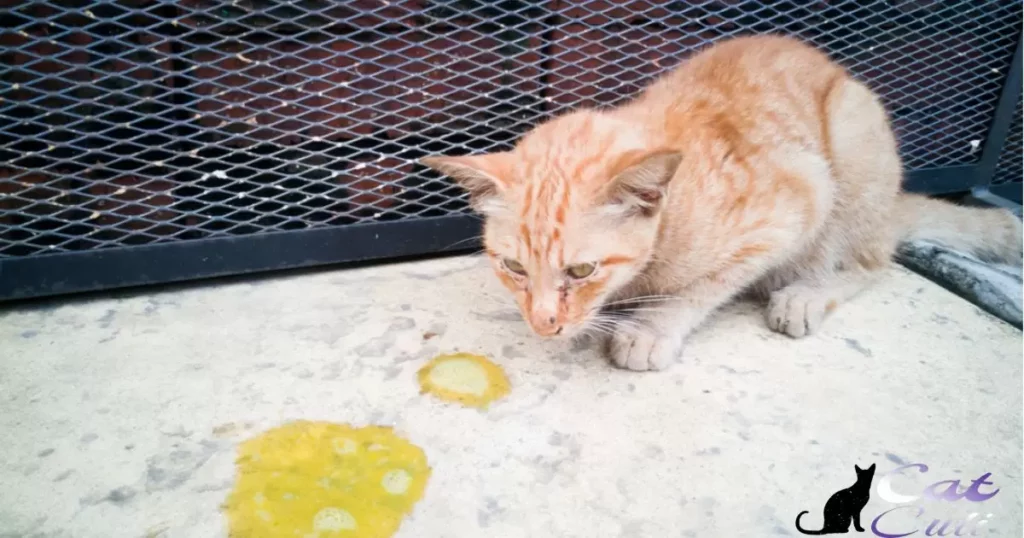
If your cat has diarrhea, consider stopping wet food for a while. Wet food might upset their stomach, causing diarrhea. Switching temporarily to dry food could help regulate their digestive system. Consult your vet for guidance on the best diet for your cat during this time.
It’s wise to pause giving your cat wet food if diarrhea persists. Diarrhea might be linked to the wet food, so eliminating it could be beneficial. Opt for a bland diet or consult your vet for alternative feeding options until your cat’s tummy troubles settle down.
FAQ’s
Can a cat get diarrhea from wet food?
Yes, wet food might upset a cat’s stomach, causing diarrhea due to dietary changes or sensitivity.
Should I stop eating food if my cat has diarrhea?
Consider stopping wet food temporarily; opt for a bland diet or consult a vet for guidance.
Can wet food make cats sick?
In some cases, wet food might cause illness; it’s best to observe and consult a vet if concerns arise.
Conclusion
In summary, the question Can wet food cause diarrhea in cats? underscores the potential impact of diet on a cat’s digestive health. While wet food can trigger diarrhea in some cats due to sudden dietary changes or individual sensitivities, it doesn’t necessarily affect all felines in the same way.
If diarrhea occurs, temporarily stopping wet food and seeking guidance from a vet can help determine the best dietary approach. The answer to whether wet food causes diarrhea may vary from cat to cat, emphasizing the importance of monitoring and adapting their diet to promote digestive comfort and overall well-being.
